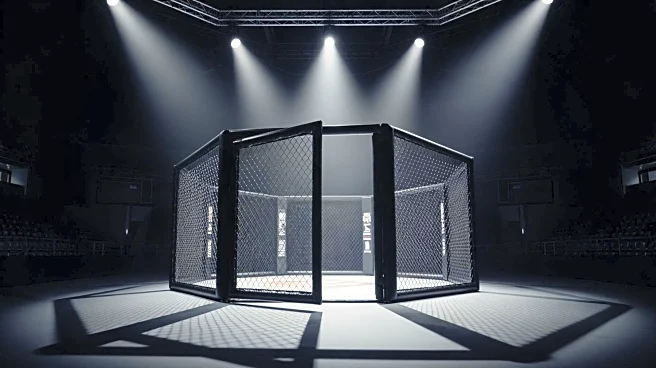What's Happening?
Jon Jones, a prominent UFC fighter, has apologized to UFC President Dana White for the way the heavyweight title saga unfolded before his retirement. Jones had refused to unify the titles against Tom Aspinall, who held the interim title during Jones'
injury absence. This led to Aspinall being elevated to undisputed status, and White accused Jones of reneging on his commitment to fight. Despite past conflicts, White accepted Jones' apology, stating that it was unnecessary and reaffirming Jones' status as the greatest of all time. Jones is now looking to make a comeback in 2026, potentially at a UFC event at the White House.
Why It's Important?
The apology and White's acceptance could pave the way for Jones' return to the UFC, which would be significant for the sport given his status as a top fighter. The potential for a high-profile event at the White House adds to the intrigue, as it would be part of the celebrations for 250 years of American independence. Jones' return could boost UFC's popularity and viewership, impacting the sport's commercial and cultural landscape. It also highlights the dynamics between athletes and management in professional sports.
What's Next?
Jones is pushing for a super-fight with Alex Pereira at the White House event in 2026. White's recent comments may encourage Jones to continue pursuing this opportunity. The UFC's plans for the White House event could attract significant attention and set a new precedent for sports events in political settings. Stakeholders will be watching closely to see how negotiations unfold and whether Jones can secure a spot on the card.
Beyond the Headlines
Jones' apology and potential comeback reflect broader themes of redemption and the complexities of athlete-management relationships. It raises questions about the balance between personal conduct and professional achievements in sports. The cultural impact of hosting a UFC event at the White House could influence perceptions of sports and politics.















